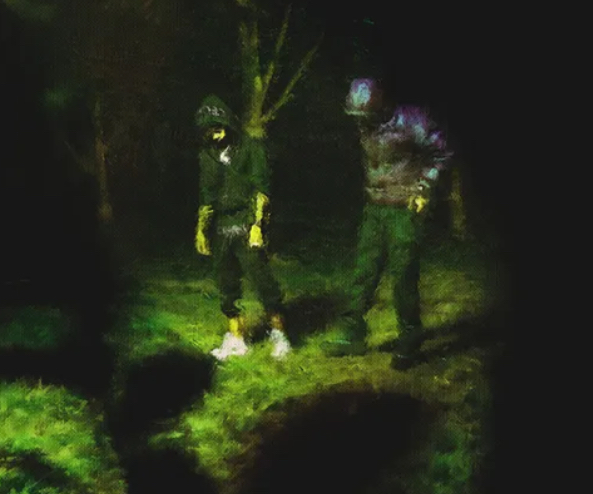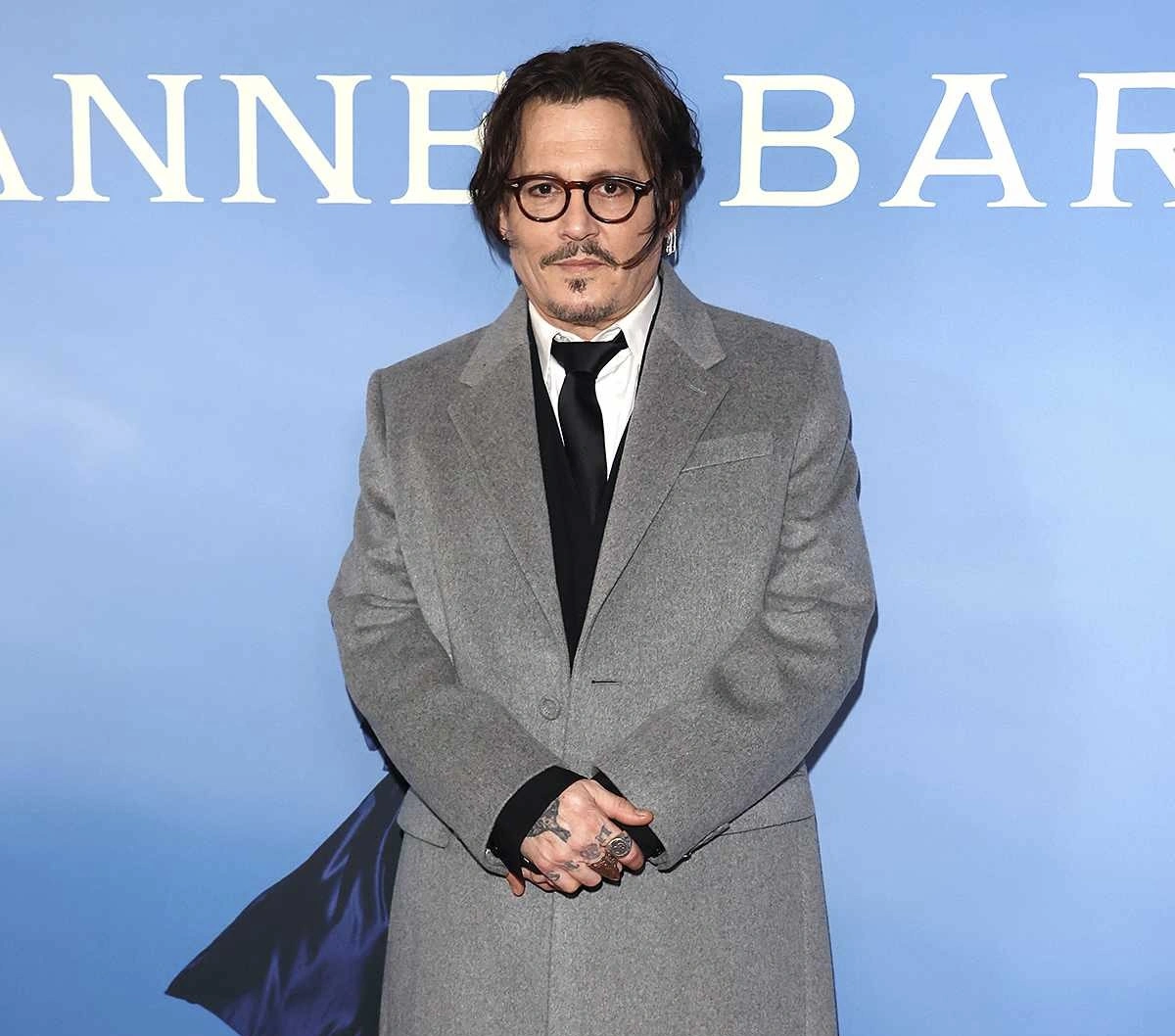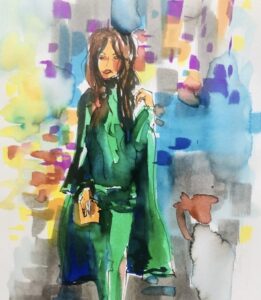In a landscape often defined by gloss and performative cool, “darkest days” by Kahukx and Kirby arrives as a deliberate interruption—a track steeped in atmosphere, restraint, and emotional truth. The single doesn’t clamor for attention; it earns it, slowly. With each passing second, its minimalism builds tension, its cadence sinks lower into introspection, and its production carves out a space for grief, ego, and defiance to quietly cohabitate.
Released under the increasingly influential wave of Australian hip-hop’s underground renaissance, “darkest days” is more than just a late-night confessional—it is a dispatch from two artists rooted in emotional realism, drawn together by shared wounds and sharp craft. For Kahukx, known for his bruised delivery and gritty romanticism, and Kirby, whose voice moves like smoke through dim rooms, this collaboration doesn’t just blend sonic styles—it reveals a shared frequency of hurt, caution, and endurance.
Kahukx: A Voice in the Haze
Kahukx has spent the last few years carefully constructing a presence that resists traditional hype cycles. Hailing from Western Sydney, he emerged not with flashy co-signs or viral gimmicks, but with the textured storytelling of a man shaped by mistakes and memories. From early tracks like “Due Time” to the deeper grooves of his nothing to something project, Kahukx built a catalog of restraint—songs that feel like whispered confessions and half-buried memories, soundtracked by the undercurrent of paranoid beauty.
What separates Kahukx from his peers isn’t just tone—it’s poise. His delivery often flattens into a near-mumble, but every word hits with clarity. In “darkest days,” that restraint finds perfect symmetry with Kirby’s delivery, as the two orbit around shadows and silence like twin moons.
Kirby: The Voice of Detached Intimacy
Where Kahukx embodies emotional friction, Kirby is the cool to his fire—the slow burn. On “darkest days,” she slips in with unassuming grace, but leaves a lasting imprint. Her tone is affectless, yet deeply felt; her lyrics speak plainly, yet resound with layered meaning. She doesn’t decorate pain—she states it. Her presence on the track doesn’t just offer balance, it reframes it. If Kahukx is recalling trauma from the middle of the storm, Kirby sounds like she’s speaking from its aftermath.
Her verse doesn’t beg empathy—it commands recognition. She walks through emotional debris without flinching, and in doing so, brings an element of feminine stoicism rarely heard in Australian rap collaborations of this register.
“darkest days”: The Track as Architecture
Built on a skeletal beat—muted 808s, ambient pads, and the negative space between notes—“darkest days” rejects the maximalist trap formula that has dominated streaming platforms in recent years. There are no drumroll theatrics or pitch-shifted hooks. Instead, the production (likely the work of Kahukx’s longtime collaborators) leans into sonic grayscale: washed textures, deep bass, whispered hi-hats. The result is claustrophobic but oddly beautiful, like fog curling through a half-lit alleyway.
The track opens with a sense of emotional vertigo. Kahukx’s voice enters low and measured, delivering lines like, “I’ve been distant since that day / still ain’t healed from the darker phase.” His cadences float slightly behind the beat, creating a feeling of disconnection that mirrors the song’s central mood—numbness as survival.
Kirby’s arrival, midway through the track, feels like a voice in the mirror. There’s no dramatic tonal shift—just a quiet continuation of sorrow reframed. “They only love you when you disappear,” she intones, the line hanging like a verdict in cold air.
What makes “darkest days” remarkable is its discipline. It never erupts, never seeks climax. The emotional tension lies in what’s withheld, not expressed. It invites the listener to linger in ambiguity, in unresolved grief, in the echo of things unsaid.
Contextual Resonance: Western Sydney’s Expanding Lexicon
The release of “darkest days” fits into a broader movement reshaping the sound of Western Sydney hip-hop. While early headlines often fixated on drill, street authenticity, and postcode pride, artists like Kahukx and Kirby are expanding the scene’s emotional lexicon. Their work rejects binary toughness in favor of something murkier—songs that speak of trauma not as spectacle, but as emotional inheritance.
Thematically, “darkest days” echoes the mood of post-pandemic burnout, economic anxiety, and the quiet desperation of a generation raised on chaos and contradiction. For fans in Sydney—and beyond—it hits as both personal and collective. It speaks to the kind of ache that isn’t explosive, but constant. The weariness of carrying your past into every new room.
The Power of Restraint
In an industry that often rewards performance over presence, “darkest days” is bold in its subtlety. It doesn’t campaign for playlist placement or virality—it simply exists, heavy and unshakeable. Its strength lies in how little it tries to impress. That’s not apathy—it’s clarity.
The track’s power comes from its refusal to overexplain. It suggests rather than insists. It mourns without melodrama. And in doing so, it becomes something rare: a rap song built on silence, space, and the honest weight of memory.
The Hustle Movement
“darkest days” won’t ignite mosh pits or dominate TikTok feeds. But it will stay. It will haunt. It will quietly become a reference point for those searching for sincerity in a landscape often crowded with artifice.
For Kahukx, it adds another layer to his evolving catalog—a darker, more distilled statement of purpose. For Kirby, it’s a powerful confirmation of voice, one that needs no affect to carry emotion. Together, they form a rare symmetry: two artists in perfect tonal alignment, offering listeners not a solution, but a place to sit with their scars.
And that’s what “darkest days” ultimately offers—not escape, but recognition. Not noise, but nuance.
It doesn’t just soundtrack a mood—it defines one.
No comments yet.








